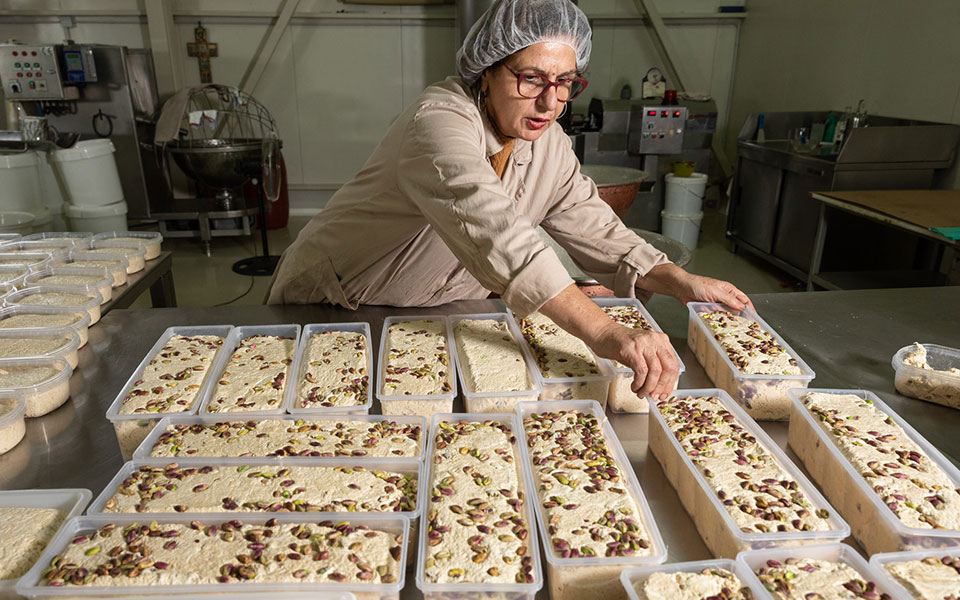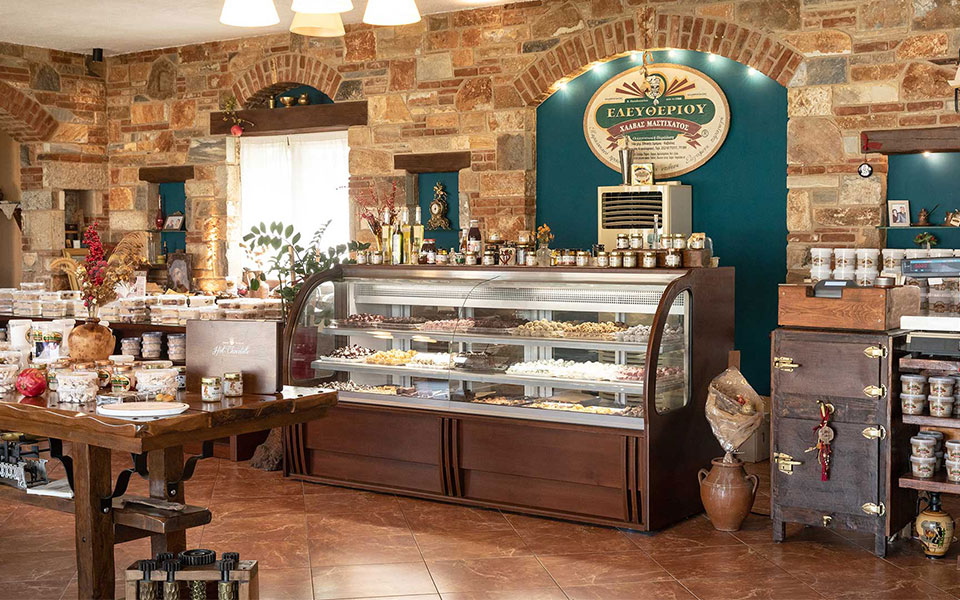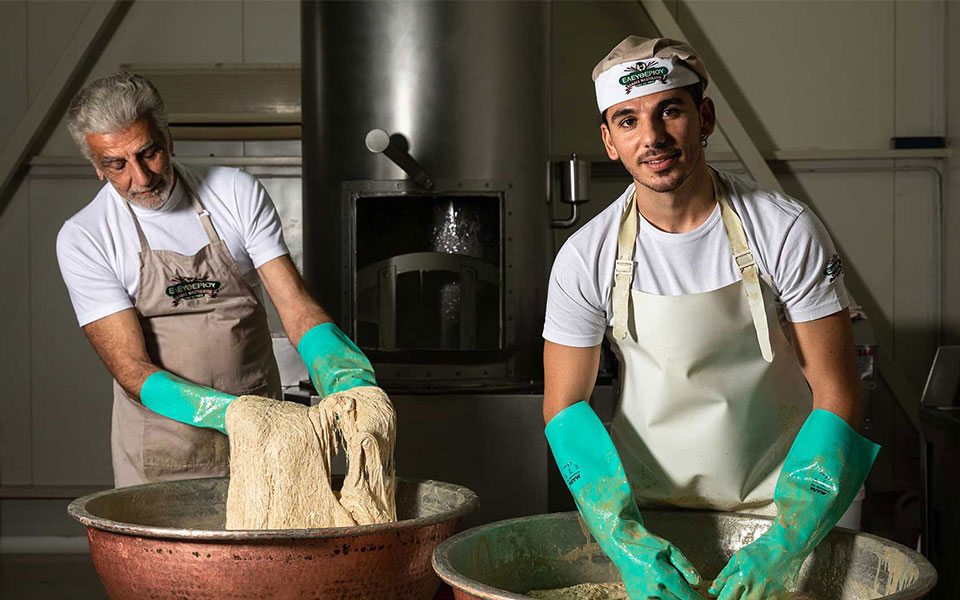Greek refugee Abraham Papadopoulos came from Axo, Cappadocia (modern-day Hasaköy in central-east Turkey), to Drama in 1923 and began making halva in a shack. Today, his descendants continue the art of making proper, chewy mastic halva the hard way: by hand! The handmade halva of the Eleftheriou family is made with carefully selected sesame seeds that are toasted and then ground at the workshop, so that they release their oils to become a thick paste (tahini).
The tahini requires intense and continuous mixing with glucose syrup and liquorice root, as well as plenty of experience and considerable “elbow grease” to create a thick web; like that of a spider, rich in tahini and essence. It is unique, and that is why it has stood the test of time, and continues to stand out every time when we do halva tasting.

© Konstantinos Tsakalidis
Its history goes back many years, as it has been made in Aghios Athanasios, near the main village of Kyrgia in Drama, for almost a century. The art of halva making was brought here by Abraham Papadopoulos in 1923, when he arrived in Greece as a displaced Asia Minor refugee from Axo, via Constantinople, with his wife Sofia. In Axo, they had worked in halva-making workshops since 1900, though when they first arrived they found jobs in the local tobacco industry.
With their meager savings, Abraham went to Thessaloniki and carried back half a sack of sugar, on foot, back to a small shack in the village square, where they made halva, sweets, fruit preserves, vanilla spoon sweets, loukoumia and kourabiedes.

© Konstantinos Tsakalidis
The art of halva was developed by the next generations, but was perfected largely by Abraham’s grandson, Lefteris Papadopoulos, who took the business from his father, Vasilis, and passed it on to his son, Vasilis. Lefteris’ trick was to knead the mixture diligently with two hands, resulting in a fibrous texture. His son Vasilis, a fourth-generation halva specialist, made minor changes: he added plain glucose, without sugar.
Their halva has a wonderful texture and, when sliced with a knife, its numerous layers are evident and reminiscent of baklava, as they have been formed by the intense kneading and multiple folding of the mixture. “Warm halva is good, but it is even better after 20 days, when the ingredients have blended and the tahini becomes more fragrant,” explain Sofia Papadopoulou and Vaso Maheridou, Lefteris’ sister and wife, respectively.

© Konstantinos Tsakalidis
“I would really like to use Greek sesame seeds, as they are blonde and of exceptional quality, but unfortunately the quantity is lacking and they are very expensive. Thus, we use imported, first rate sesame seeds,” says Lefteris. You should not chew their halva immediately; rather, let it roll around in your mouth a few times, as if sucking on a sweet, in order to bring it to room temperature. This will make it melt more easily, and its texture will not be like chewing gum.
They make the classic plain halva, halva with roasted almonds, hazelnuts and peanuts, as well as with exceptional Callebaut Belgian chocolate. They also make carob rahat, a black halva made from carob flour and carob syrup. They produce more than 50 tons of halva every year, and export to Poland and Germany.
This article was previously published in Greek at gastronomos.gr.
Eleftheriou Halvas was awarded at the Gastronomos magazine’s 15th Quality Awards in December 2022 – an evening in honor of the culinary heritage of Asia Minor, and the producers and businesses run by the children and grandchildren of Asia Minor refugees.












